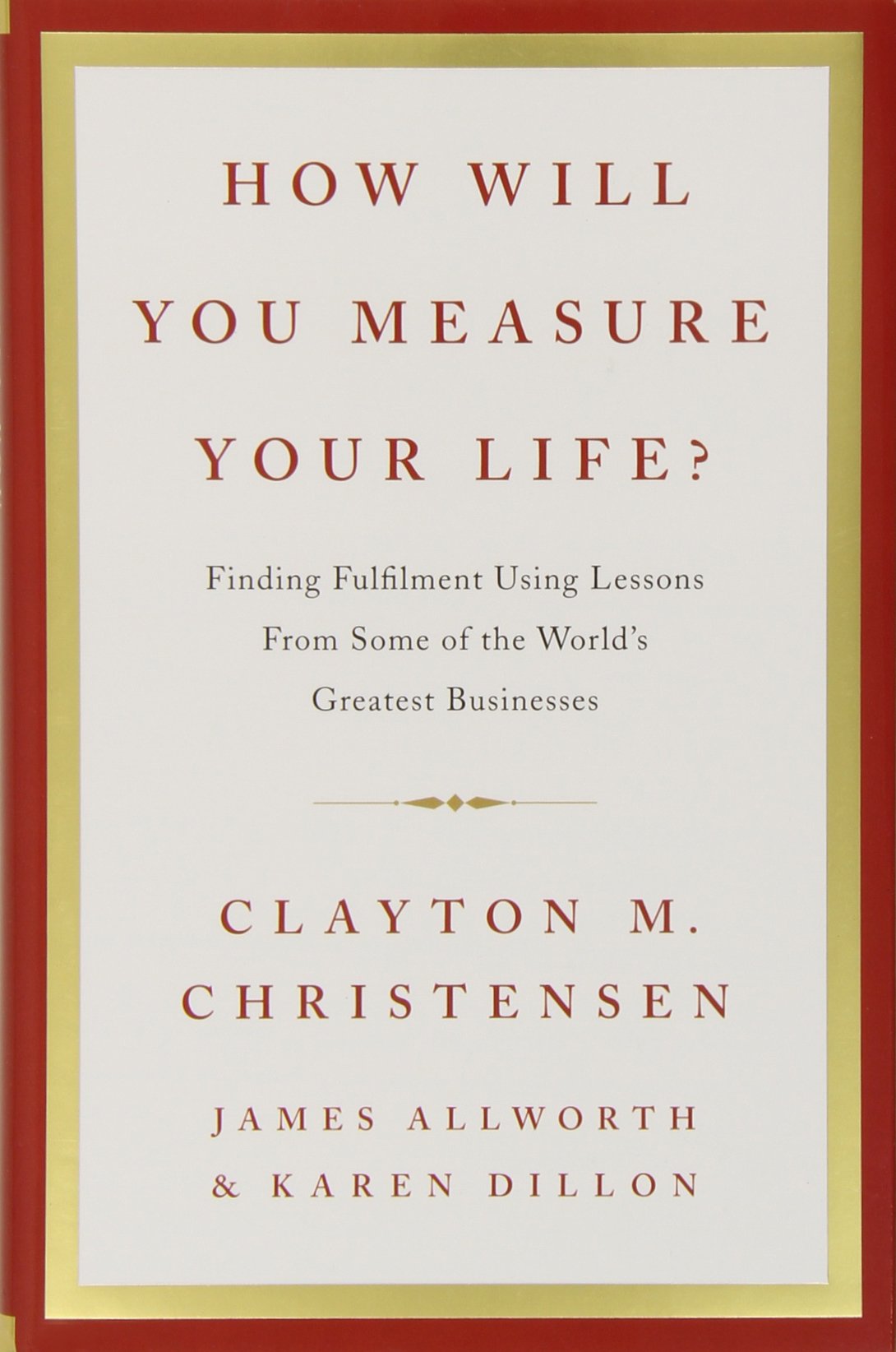How will you measure your life – Some quotes from the book
Understanding what makes us tick is a critical step on the path to fulfillment. But that’s only half the battle. You actually have to find a career that both motivates you and satisfies the hygiene factors. If it were that easy, however, wouldn’t each of us already have done that? Rarely is it so simple. You have to balance the pursuit of aspirations and goals with taking advantage of unanticipated opportunities. Managing this part of the strategy process is often the difference between success and failure for companies; it’s true for our careers, too.
An employee or a group of employees come up with an innovative idea for a new product or service; they’re enthusiastic about their idea, and they want their colleagues to be, too. But to convince senior management of the idea’s potential, they need to come up with a business plan. They are acutely aware that for management to approve the project, the numbers had better look good—but the team often won’t really know how customers will respond to the idea, what the true costs will turn out to be, and so on. So they guess—they make assumptions. Frequently, planners are sent back to the drawing board to change their guesses. But this is rarely because they have learned new information; instead, innovators and middle managers typically know how good the numbers have to look in order for their proposal to get funded, so they often need to cycle back and “improve” their guesses in order for the proposal to get the go-ahead.
Misaligned incentives are pervasive. For example, America is unable to change its Social Security, Medicare, and other entitlement programs— despite the fact that everyone agrees that these programs are driving the country over a precipitous cliff toward bankruptcy. Why? Members of the House of Representatives stand for reelection every two years. These representatives, rightly or wrongly, are convinced that if America is to be saved, they personally need to be reelected in order to lead that effort.
The danger for high-achieving people is that they’ll unconsciously allocate their resources to activities that yield the most immediate, tangible accomplishments. This is often in their careers, as this domain of their life provides the most concrete evidence that they are moving forward. They ship a product, finish a design, help a patient, close a sale, teach a class, win a case, publish a paper, get paid, get promoted. They leave college and find it easy to direct their precious energy into building a career. The students in my class are often like this—they leave school with an intense drive to have something to show for their education.
It’s rarely easy. Even when you know what your true priorities are, you’ll have to fight to uphold them in your own mind every day. For example: like many of you, I suspect, I’m naturally drawn to interesting problems and challenges. I can lose myself in one for hours; solving it will give me a short-term “high.” It would be easy for me to stay late at work noodling on one of these challenges, or to be stopped in the hallway to have an interesting conversation with a colleague, or to answer the phone and find myself agreeing to work on
If you give in to “just this once,” based on a marginal-cost analysis, you’ll regret where you end up. That’s the lesson I learned: it’s easier to hold to your principles 100 percent of the time than it is to hold to them 98 percent of the time. The boundary—your personal moral line—is powerful, because you don’t cross it; if you have justified doing it once, there’s nothing to stop you doing it again
